Are you a freelancer looking to secure your sensitive information while working with clients? A well-crafted confidentiality agreement is essential to protect your creative ideas and proprietary methods. This template will guide you through the key elements to include, ensuring both you and your clients feel secure in your professional relationship. Let's dive in to explore how you can create a robust agreement that serves your freelance needs!

Scope of Confidentiality
A Freelance Confidentiality Agreement encompasses crucial elements pertaining to the protection of sensitive information shared during a project. This document outlines the Scope of Confidentiality, which specifies the types of information considered confidential, including proprietary data, business strategies, financial records, client lists, and intellectual property. In most cases, the agreement stipulates that both parties--typically the freelancer and the client--are obligated to safeguard this information from unauthorized disclosure. Furthermore, the Scope may clarify the duration of confidentiality obligations, often extending beyond the termination of the freelance relationship, ensuring that any sensitive information accessed remains protected indefinitely. This framework helps maintain the trust and integrity crucial for a successful collaboration between freelancers and their clients.
Definition of Confidential Information
Confidential information refers to sensitive data that is disclosed during the course of a freelance engagement. This information may include proprietary details such as business plans, financial records, customer lists, trade secrets, product designs, and marketing strategies. Confidential information also encompasses any communication, whether oral or written, that is identified as confidential at the time of disclosure. The term extends to any information received from associated third parties where confidentiality is expected, as well as modifications or adaptations of the aforementioned data. Secure handling and strict non-disclosure are critical for maintaining the integrity of confidential information shared between freelancers and clients during the business relationship.
Obligations and Responsibilities
Freelancers must understand their obligations and responsibilities in maintaining confidentiality when working with clients. The confidentiality agreement outlines key components such as protecting sensitive information related to projects, including proprietary data, client marketing strategies, and financial records. Freelancers are required to implement safeguards that prevent unauthorized access to this information, such as secure data storage solutions and encrypted communication methods. Additionally, they must refrain from discussing or disclosing any confidential material to third parties without prior written consent from the client, ensuring that trust and professionalism are upheld throughout the duration of their engagement. Violation of these obligations can lead to legal repercussions, including potential lawsuits and financial penalties, emphasizing the significance of adherence to the confidentiality terms established in the agreement.
Duration of Agreement
A confidentiality agreement outlines the commitment between parties to protect sensitive information. Typically, the duration of such agreements varies based on the nature of the project. For example, a standard freelance confidentiality agreement may last for one to three years following the termination of services, ensuring that all proprietary information, trade secrets, or client data remain secure. Specific terms might also stipulate that any information disclosed must be kept confidential indefinitely if it pertains to ongoing projects or developments by the client. Parties involved can negotiate terms based on project sensitivity and legal requirements, ensuring clear expectations regarding termination conditions and obligations concerning confidential information.
Termination Conditions and Clauses
Termination of a freelance confidentiality agreement may occur under specific conditions, including breach of contract, expiration of the agreement, or mutual consent of both parties. A breach of this contract may involve unauthorized disclosure of sensitive information, which can encompass client lists, proprietary techniques, or unpublished content. Upon termination, the freelancer must return or destroy all confidential materials received during the engagement. Additionally, clauses may stipulate the duration of the confidentiality obligation post-termination, often extending from one year to an indefinite period based on the type of information involved. In cases of legal disputes arising from the agreement, mediation steps may be outlined before proceeding to arbitration or court action to resolve conflicts amicably. This ensures both parties have clear expectations regarding the handling of confidential information and the repercussions of any violations.

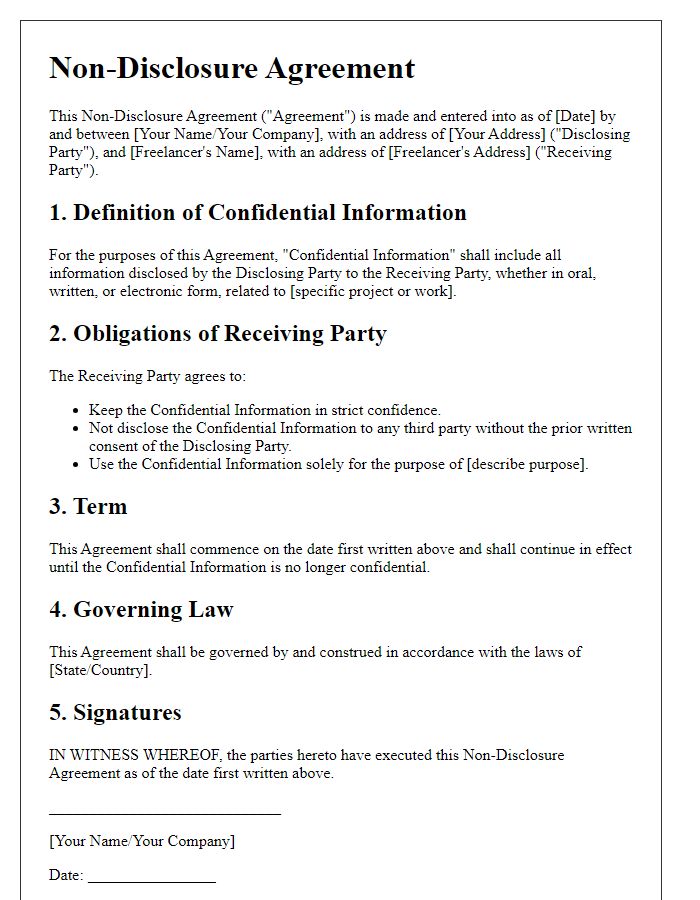
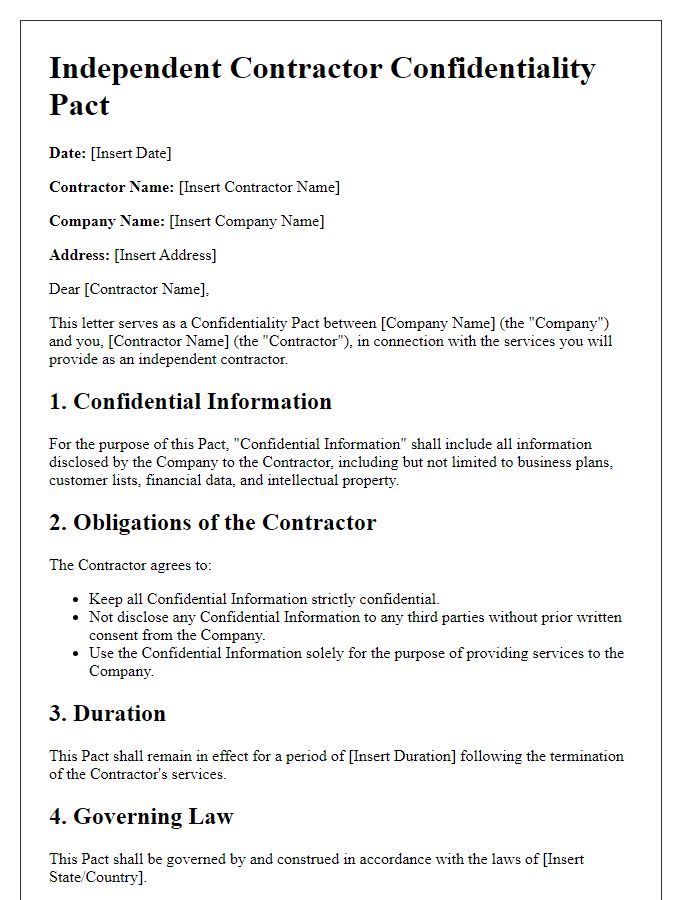
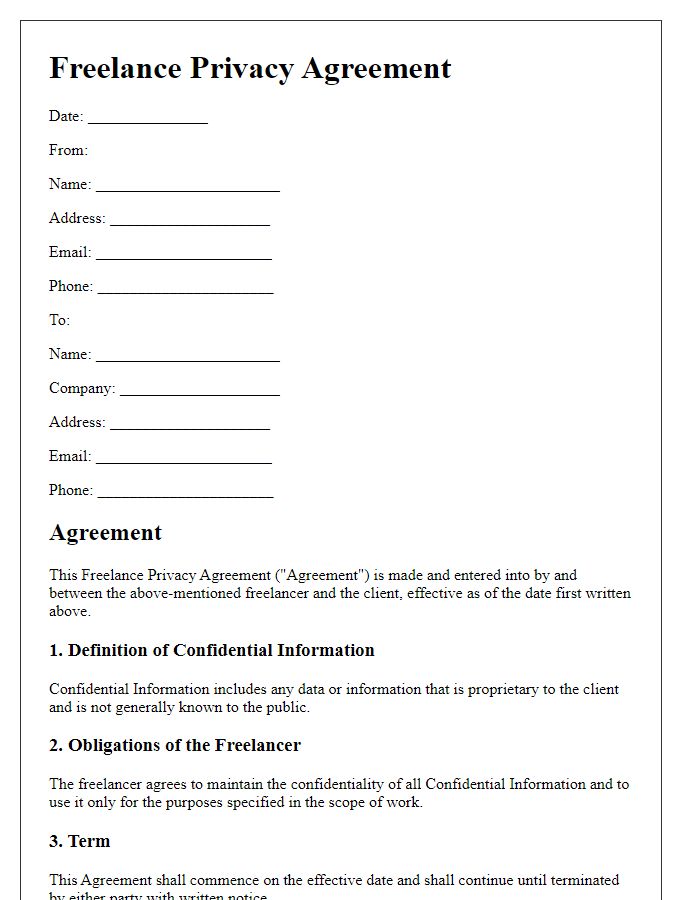
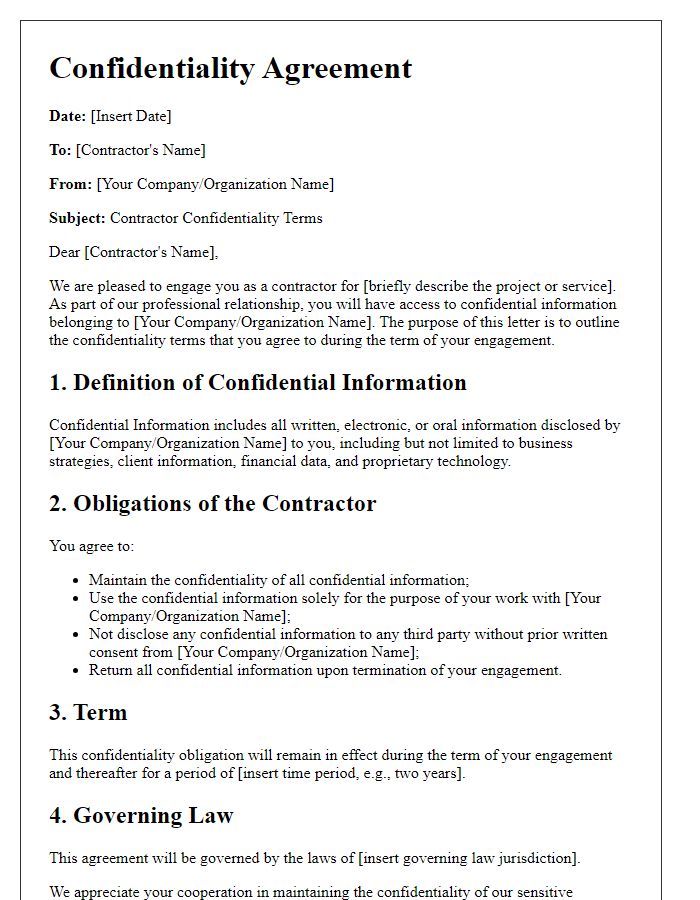
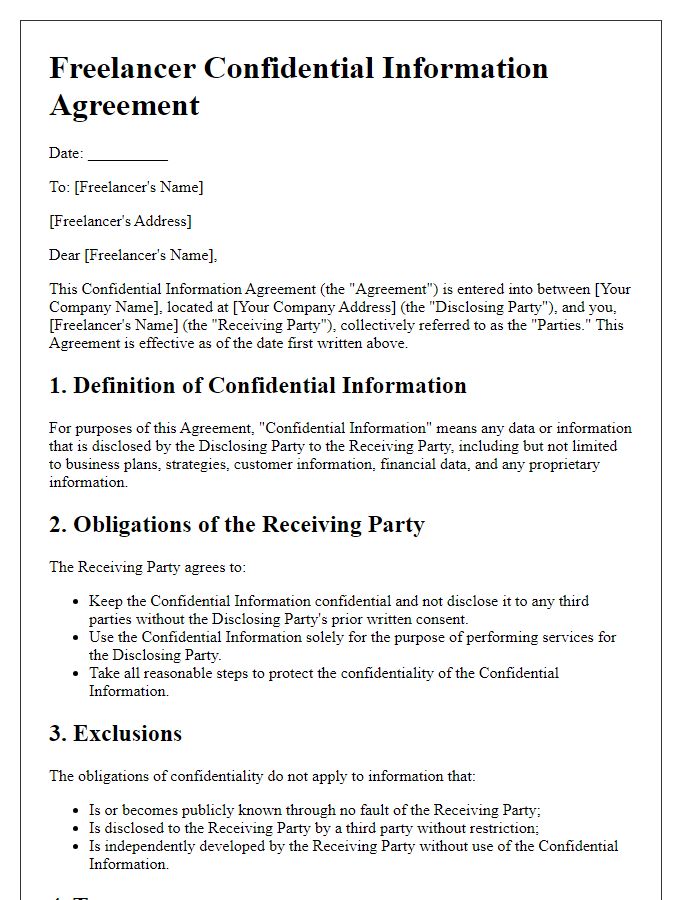
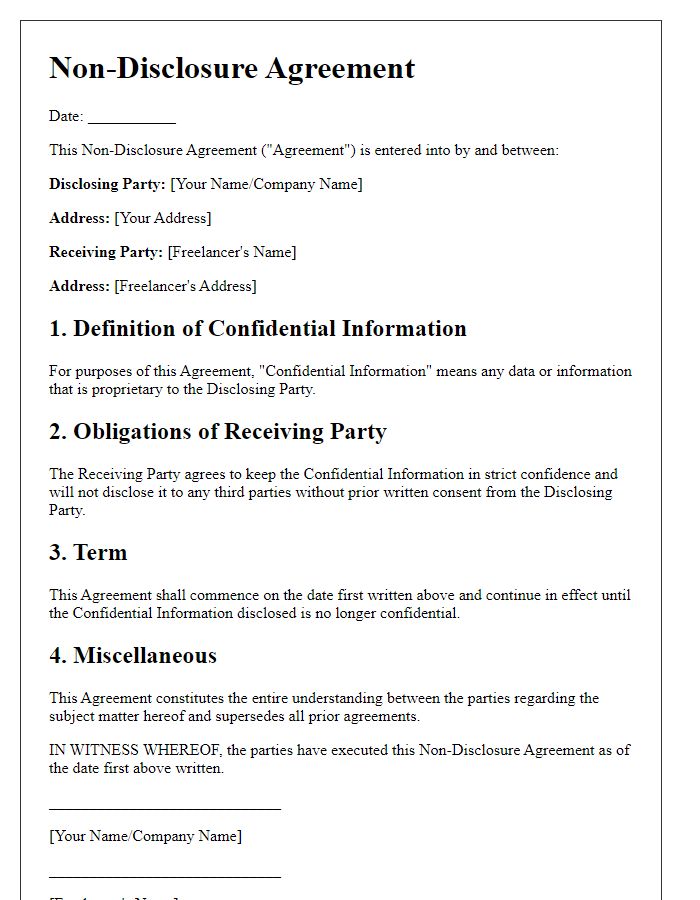
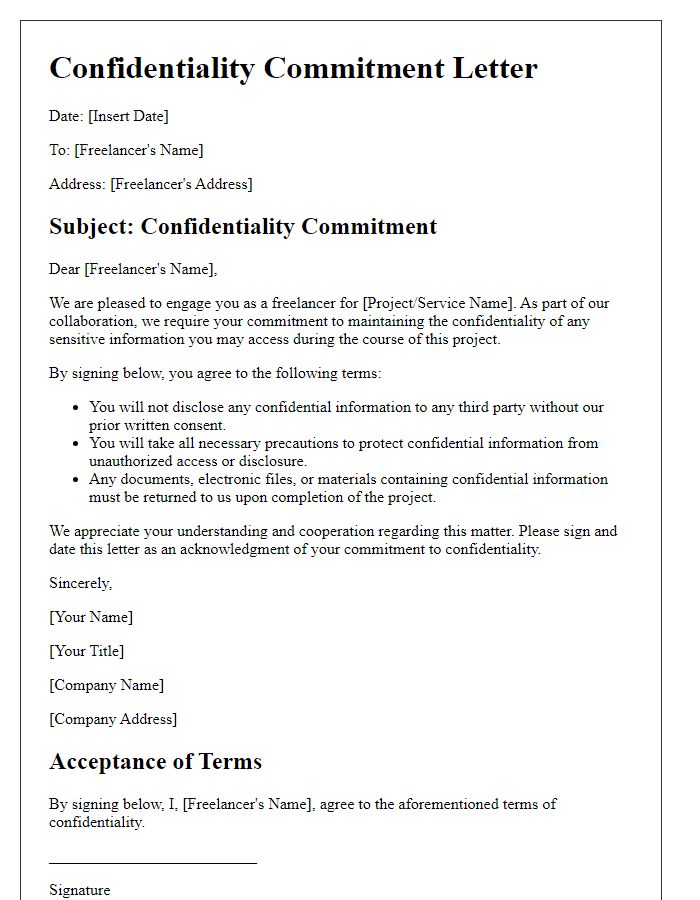
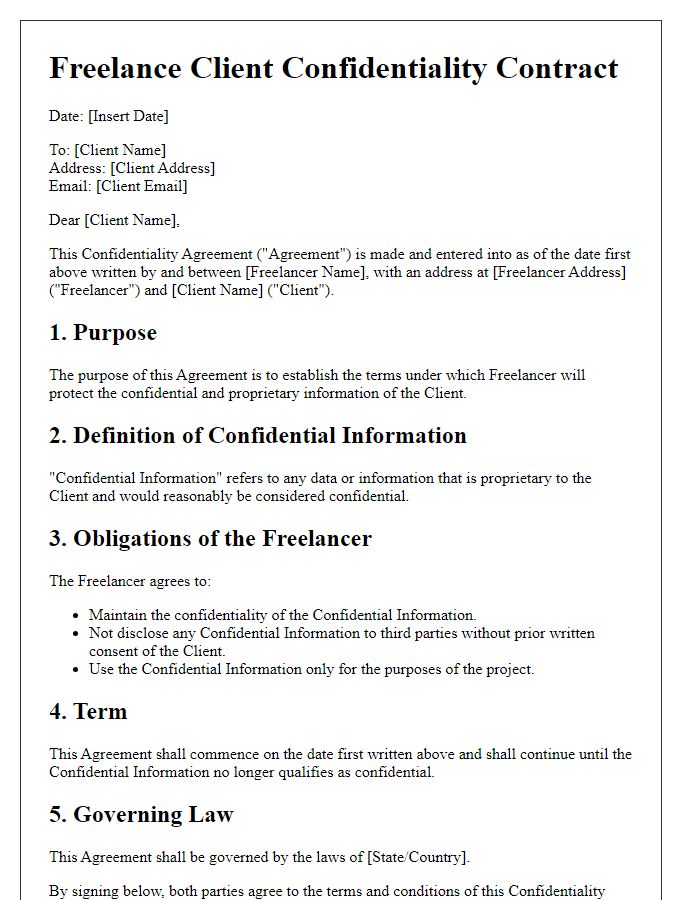
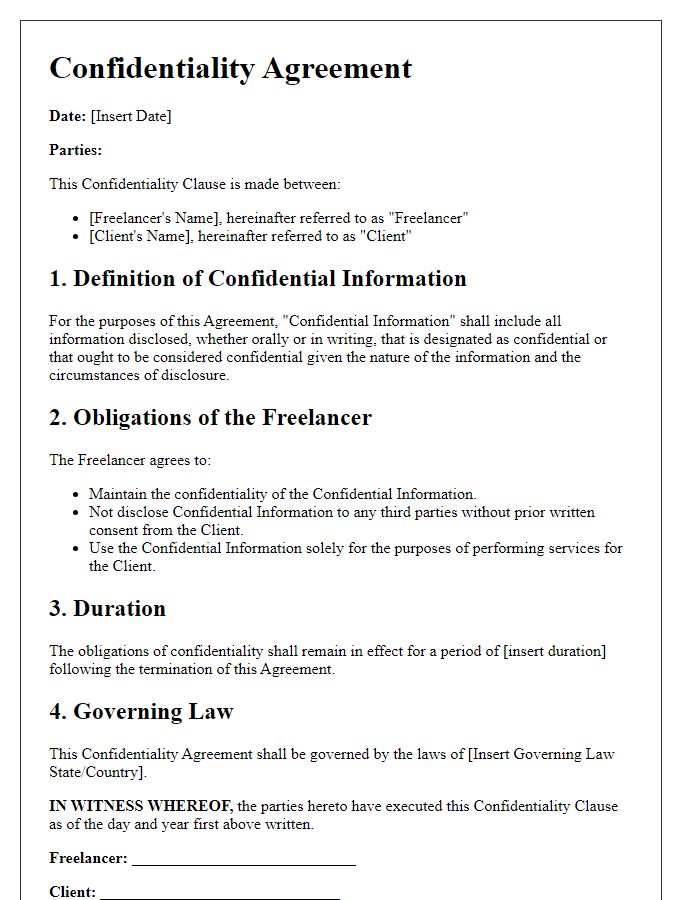
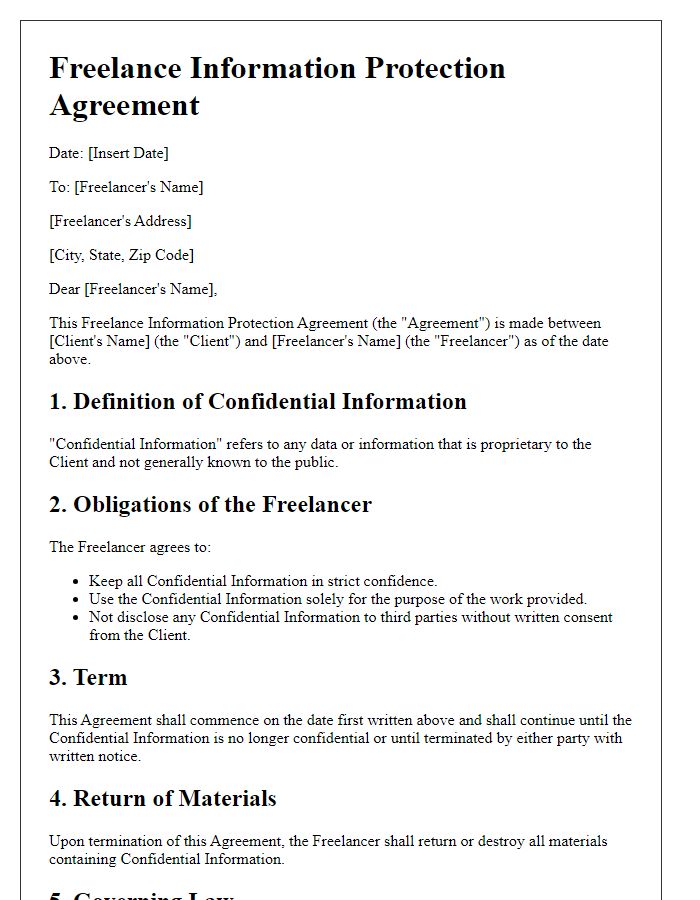


Comments